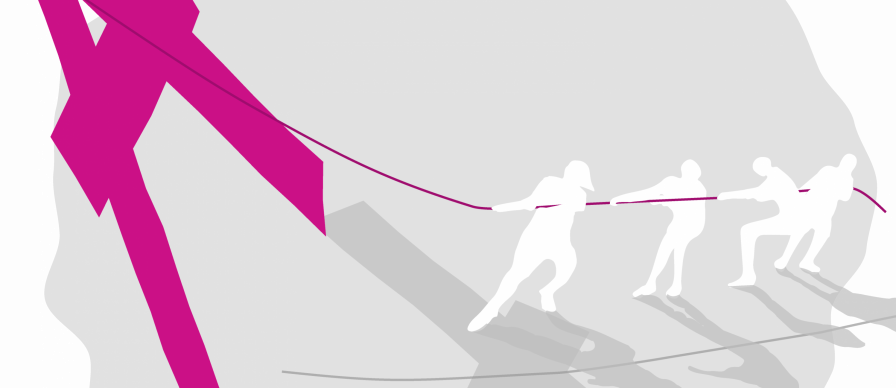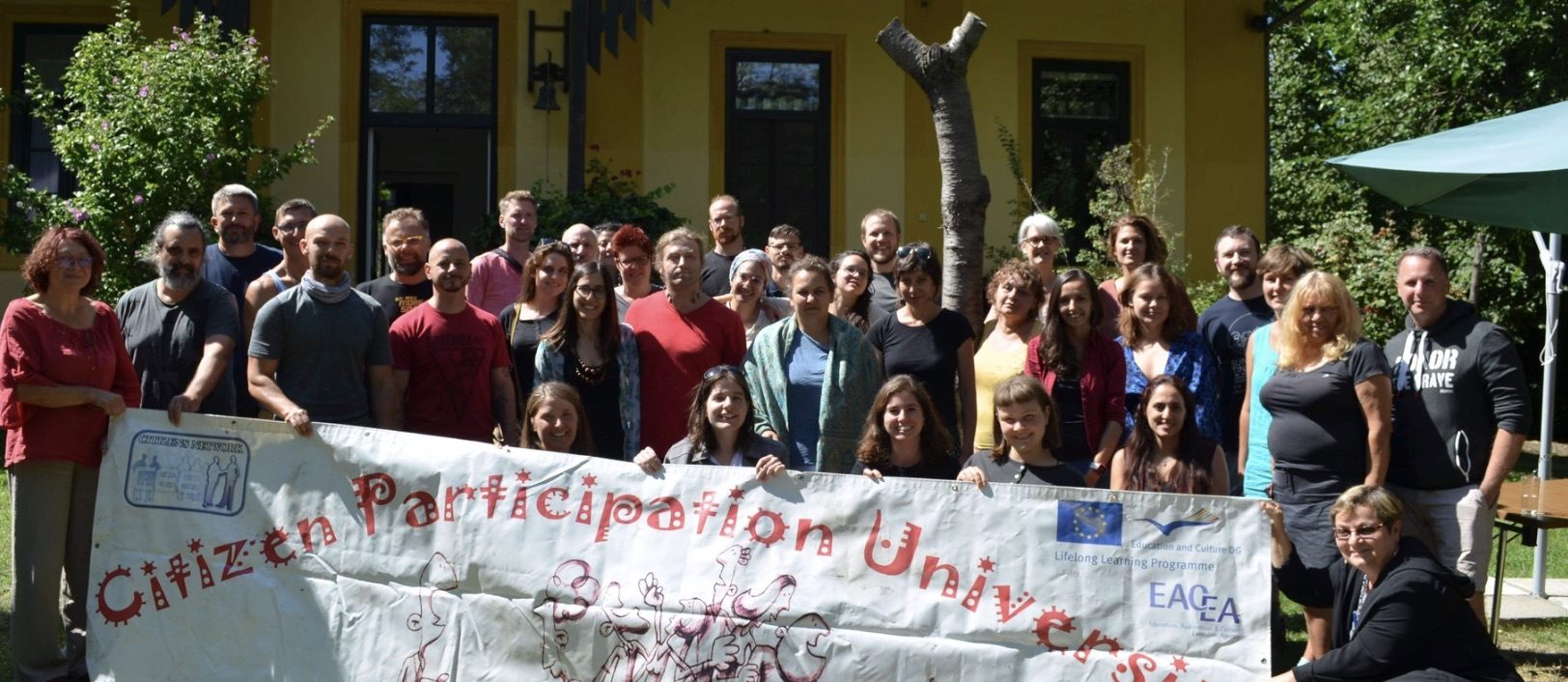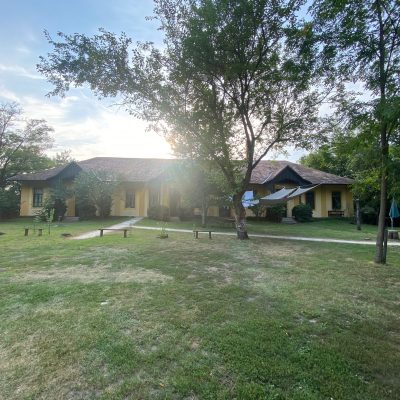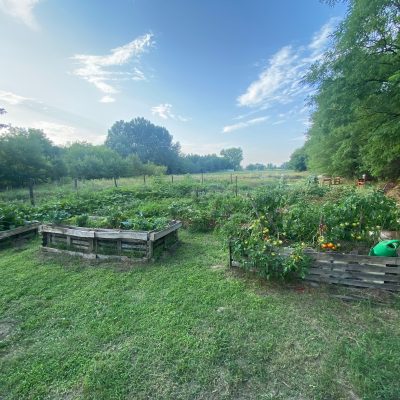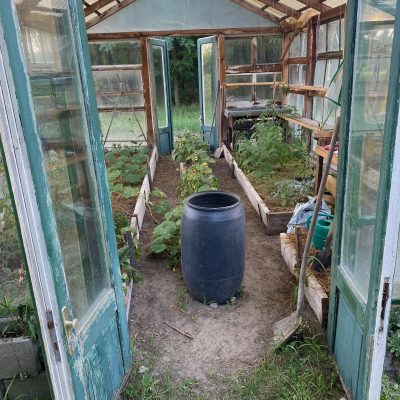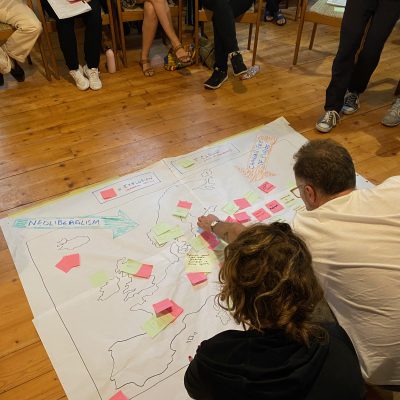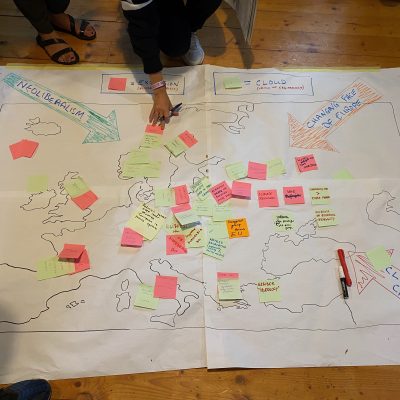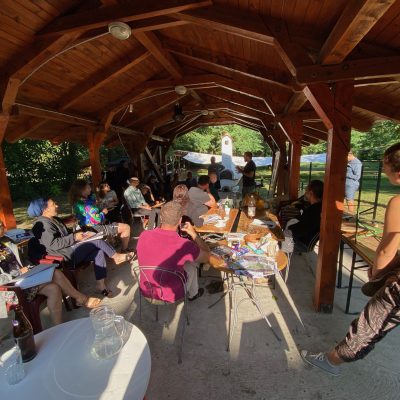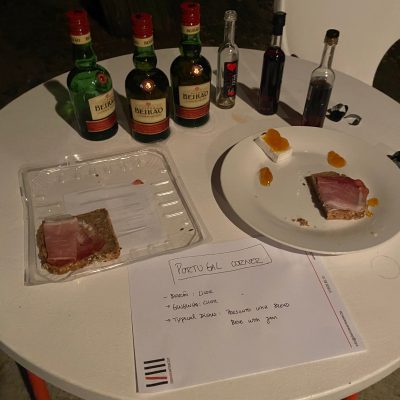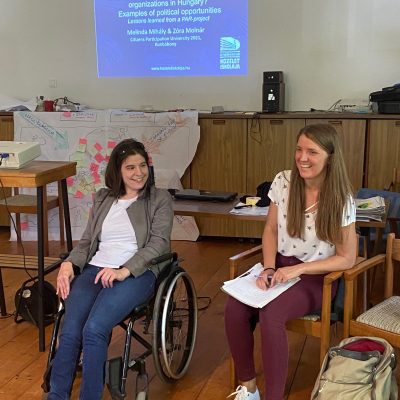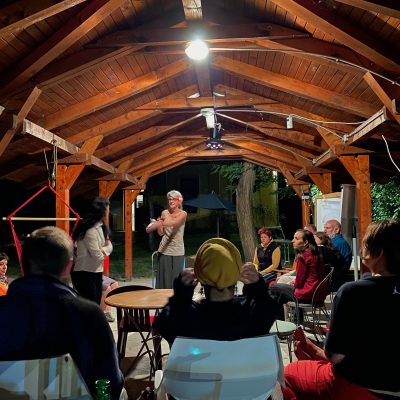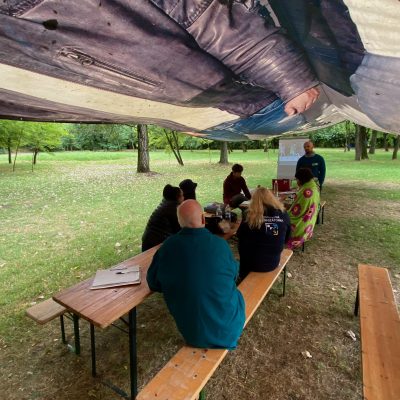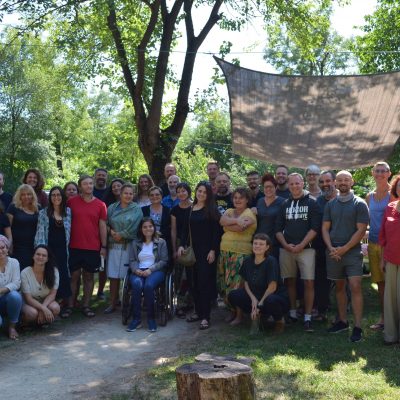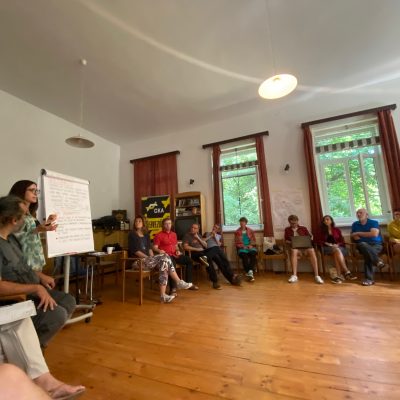I had travelled to ‘amber listed’ Hungary to take co-facilitate in the CPU’s, weeklong, international event, ‘Organizing Communities in a Time of Crisis’. The event organised by the CPU and the European Community Organizing Network (ECON) was coming together for its 11th year and for the first time since the Covid-19 pandemic. Attending the event in 2021 was a challenge for all the participants. I myself needing 4 PCR tests. One before I left, one in Hungary and two when I returned to the UK. Note: All were ‘negative’.
Published 6th September 2021
Organising Communities in a Time of Crisis
In August 2021, I visited a small town 1hours drive (70km) south of Budapest in Hungary, called Kunbabony. Here in a tiny rural community is a small, former school building, where amazing things happen. The neatly presented building is home to the Citizen Participation University (CPU), known in Hungary as the Civil Kollégium Alapítvány. The first impression when I arrived on the Sunday evening, the day before the event, was the overwhelming 35-degree heat.
The agenda for Organising Communities in a Time of Crisis
The people attending the CPU were creative change makers, community organizers, movement leaders, activists, artists, community development workers, and adult educators from across Europe (Slovakia, Serbia, United Kingdom, Slovenia, Germany, Hungary, Czech Republic, Romania, Belgium, Poland, Italy, Portugal). There were also representatives originating from North and South America (Argentina, USA, Canada).
The agenda for the week was split between whole group plenary sessions, learning labs and creative workshops.
The daily learning labs followed three themes:
- Climate: Stories of Climate Organizing
- Building true democracies: Organizing in marginalised Communities
- Organizing: Engaging communities – the listening process
The plenary sessions included:
- Intersecting crises: Analysing current social issues in Europe
- Strategies to respond to crises: Shaping solutions to social issues
- Building solidarity
- Public narrative – Marshall Ganz
The Creative workshops were:
- Theatre for climate: Theatre of the Oppressed
- Creative digital organizing: Open network
There were also fascinating evening activities run by various participants at the event. This included a marketplace to show off your organisation and countries national food. There was also salsa dancing and a fascinating workshop called ‘Filming in the Dark’. The Filming in the Dark workshop was taken from work in the Czech Republic where they help visually impaired people to film and create their own video diaries.
What did I learn from the week away?
It was a motivational week. Learning new skills, developing my practice, refreshing knowledge, and developing ideas. The feeling of solidarity in the space was incredible and inspiring. The realisation that all of the countries represented were facing many of the same issues that we see here in the United Kingdom.
- The fear of climate change and its effects on communities.
- Access to food and basic human rights
- The lack of access to Wifi, and the incapacity to access services.
- The way that marginalised communities are ostracised and blamed for issues either out of their control or because of long-term systemic ill-treatment
- Governments that promised a lot yet fail to deliver
- Racism and xenophobia – including institutional prejudice against people with disabilities
- A sense that there is a growing gap between the haves and have nots
The biggest differences that I could see were within the countries’ governments, the levels of ‘real democracy’, and citizen’s abilities to challenge power.
Next Steps
Having now connected with all the participants through email and social media there is an overwhelming drive to build on the solidarity that we felt at CPU.
Community Organisers are planning to run a series of workshops this Autumn in collaboration with the European Community Organisers Network. The workshops will follow a narrative of connecting with each other, identifying the key issues that affect us all, creating strategies and agreeing on joint actions.
Organising Communities in a Time of Crisis has never felt more relevant, important, or urgent.
Here is a list of some of the amazing grassroots organisations represented at CPU:
- School of Public Life / Közélet iskolája
- Network for Youth Roma Organizers
- De Roda Antraciet
- RIMO Limburg
- SO Antwerpen provincie/EuCDN
- Freie Ungarische Botschaft (FUB)
- Clinton School of Public Service
- ECON
- Civil College Foundation (CKA)
- Ökotárs
- Common Thing Foundation
- CeRe / MozaiQ
- CeRe / Declic
- Serbia on the Move
- aHang
- European Alternatives
- Selbstvertretung Wohnungsloser Menschen
- Particitiz
- Tutela Learning Network / Mujeres Errantes
- Breathe Climate Justice Organising
- Rehearsal for Reality
- Leading Change Network
- ERGO Network
- Osvěta z.s.
The workshops will happen in Autumn/Winter 2021 after our national event – CO21: The Positive Power of Place
